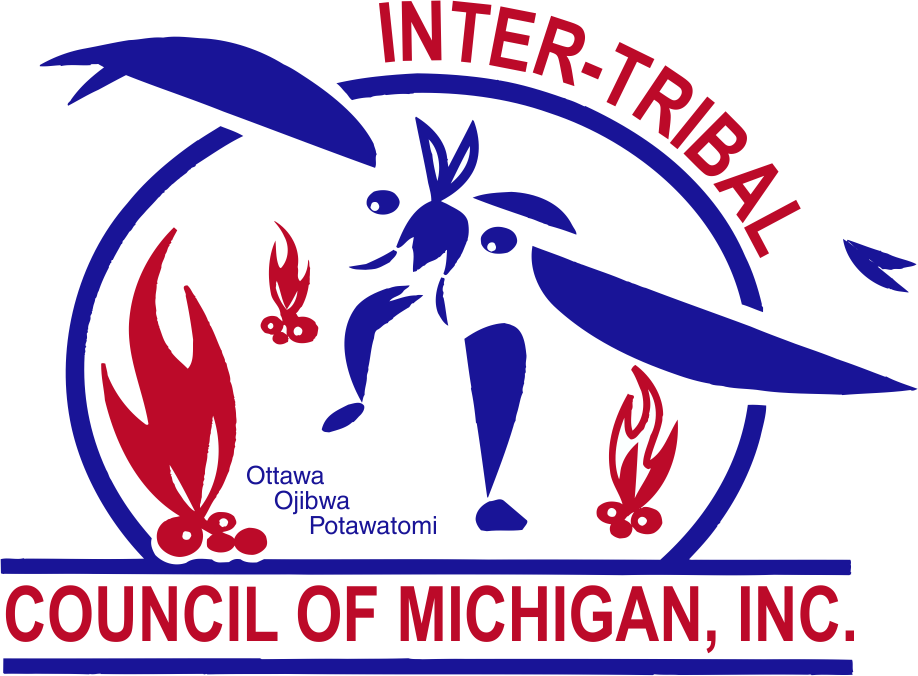Substance Use Disorders Programs & Resources FFPSA Childhood is Sacred...
Read MoreTag: Maternal Resource
Maternal Resource
Traditional Teachings Resources
The focus of these resources is geared towards expecting families, newborns, and early childhood.

Maternal Resource
Perinatal & Mental Health

U.P. Community Resources
Maternal Resource
Here families, individuals, home visitors, and community organizations will find helpful tools, information, and resources to help answer questions, find resources, training, share documents, and find community partners.

Videos

Programs & Resources
No posts found!
About Healthy Start
Healthy Start is a national infant mortality prevention initiative funded by the U.S. Department of Health and Human Services, Health Resources and Services Administration, Maternal and Child Health Bureau. Our project is one of about 100 federally-funded projects around the country, and includes 10 sites: Bay Mills Indian Community, Grand Traverse Band of Ottawa and Chippewa Indians, Hannahville Indian Community, Keweenaw Bay Indian Community, Little Traverse Bay Bands, Nottawaseppi Huron Band of Potawatomi, Pokagon Band of Potawatomi Indians, Saginaw Chippewa Tribe, Sault Tribe of Chippewa Indians,and American Indian Health & Family Services of Southeast Michigan. Healthy Start focuses on access to and use of health services for women and their families, strengthening local health systems and increasing consumer input into these systems of local care. Each year, we provide personalized, supportive case management to between 600 and 700 people, and community outreach and education services to over 4,000 people in 14 counties in Michigan.
Core Strategies: Healthy Start features evidence-based practices and innovative, culturally informed community-driven interventions. Beginning with direct outreach by community health workers to pregnant and postpartum women, we ensure that mothers and infants have ongoing sources of primary and preventive health care and that their basic needs (housing, psychosocial, nutritional and educational support) are met. Following risk assessments and screening for perinatal depression, case managers provide linkages with appropriate services and education. Most services are delivered through home visiting. Mothers and infants are followed from entry into prenatal care through 2 years after delivery. The project has strong collaborative linkages with State programs including Title V MCH Block Grant, Medicaid, State Child Health Insurance Program, and with local agencies and services.
Success: Since the introduction of Healthy Start in 1997, we have seen a steady downward trend in American Indian infant mortality within the project area, with the disparity gap narrowing between White and American Indian infants. Other trends include a marked increase in first trimester prenatal care, lower prematurity rates, an increase in those securing a medical home, increased screening for pregnancy and postpartum health risks, and increased use of culturally competent elements in policies, guidelines and trainings.
Community Resources

Programs & Resources
No posts found!
About Healthy Start
Healthy Start is a national infant mortality prevention initiative funded by the U.S. Department of Health and Human Services, Health Resources and Services Administration, Maternal and Child Health Bureau. Our project is one of about 100 federally-funded projects around the country, and includes 10 sites: Bay Mills Indian Community, Grand Traverse Band of Ottawa and Chippewa Indians, Hannahville Indian Community, Keweenaw Bay Indian Community, Little Traverse Bay Bands, Nottawaseppi Huron Band of Potawatomi, Pokagon Band of Potawatomi Indians, Saginaw Chippewa Tribe, Sault Tribe of Chippewa Indians,and American Indian Health & Family Services of Southeast Michigan. Healthy Start focuses on access to and use of health services for women and their families, strengthening local health systems and increasing consumer input into these systems of local care. Each year, we provide personalized, supportive case management to between 600 and 700 people, and community outreach and education services to over 4,000 people in 14 counties in Michigan.
Core Strategies: Healthy Start features evidence-based practices and innovative, culturally informed community-driven interventions. Beginning with direct outreach by community health workers to pregnant and postpartum women, we ensure that mothers and infants have ongoing sources of primary and preventive health care and that their basic needs (housing, psychosocial, nutritional and educational support) are met. Following risk assessments and screening for perinatal depression, case managers provide linkages with appropriate services and education. Most services are delivered through home visiting. Mothers and infants are followed from entry into prenatal care through 2 years after delivery. The project has strong collaborative linkages with State programs including Title V MCH Block Grant, Medicaid, State Child Health Insurance Program, and with local agencies and services.
Success: Since the introduction of Healthy Start in 1997, we have seen a steady downward trend in American Indian infant mortality within the project area, with the disparity gap narrowing between White and American Indian infants. Other trends include a marked increase in first trimester prenatal care, lower prematurity rates, an increase in those securing a medical home, increased screening for pregnancy and postpartum health risks, and increased use of culturally competent elements in policies, guidelines and trainings.
Maternal Resource
Pre-term Birth Resources

2016 Premature Birth Report Card
Powered By EmbedPress
Racial & Ethnic Disparities in Birth Outcomes
Powered By EmbedPress
Racial & Ethnic Disparities in Preterm Birth Among American Indian and Alaska Native Women
Powered By EmbedPress
Maternal Resource
Smoking Cessation

Programs & Resources
Powered By EmbedPress
Maternal Resource
Substance Use Disorders

Programs & Resources
Fetal Alcohol Spectrum Disorders
Substance Use Disorders Programs & Resources FFPSA Childhood is Sacred...
Read MoreMaternal Resource
Youth & Teens

Resources
Powered By EmbedPress
Powered By EmbedPress
Powered By EmbedPress
Powered By EmbedPress
Powered By EmbedPress
Maternal Resource
Parenting & Early Childhood Resources

Programs & Resources
No posts found!
About Healthy Start
Healthy Start is a national infant mortality prevention initiative funded by the U.S. Department of Health and Human Services, Health Resources and Services Administration, Maternal and Child Health Bureau. Our project is one of about 100 federally-funded projects around the country, and includes 10 sites: Bay Mills Indian Community, Grand Traverse Band of Ottawa and Chippewa Indians, Hannahville Indian Community, Keweenaw Bay Indian Community, Little Traverse Bay Bands, Nottawaseppi Huron Band of Potawatomi, Pokagon Band of Potawatomi Indians, Saginaw Chippewa Tribe, Sault Tribe of Chippewa Indians,and American Indian Health & Family Services of Southeast Michigan. Healthy Start focuses on access to and use of health services for women and their families, strengthening local health systems and increasing consumer input into these systems of local care. Each year, we provide personalized, supportive case management to between 600 and 700 people, and community outreach and education services to over 4,000 people in 14 counties in Michigan.
Core Strategies: Healthy Start features evidence-based practices and innovative, culturally informed community-driven interventions. Beginning with direct outreach by community health workers to pregnant and postpartum women, we ensure that mothers and infants have ongoing sources of primary and preventive health care and that their basic needs (housing, psychosocial, nutritional and educational support) are met. Following risk assessments and screening for perinatal depression, case managers provide linkages with appropriate services and education. Most services are delivered through home visiting. Mothers and infants are followed from entry into prenatal care through 2 years after delivery. The project has strong collaborative linkages with State programs including Title V MCH Block Grant, Medicaid, State Child Health Insurance Program, and with local agencies and services.
Success: Since the introduction of Healthy Start in 1997, we have seen a steady downward trend in American Indian infant mortality within the project area, with the disparity gap narrowing between White and American Indian infants. Other trends include a marked increase in first trimester prenatal care, lower prematurity rates, an increase in those securing a medical home, increased screening for pregnancy and postpartum health risks, and increased use of culturally competent elements in policies, guidelines and trainings.

